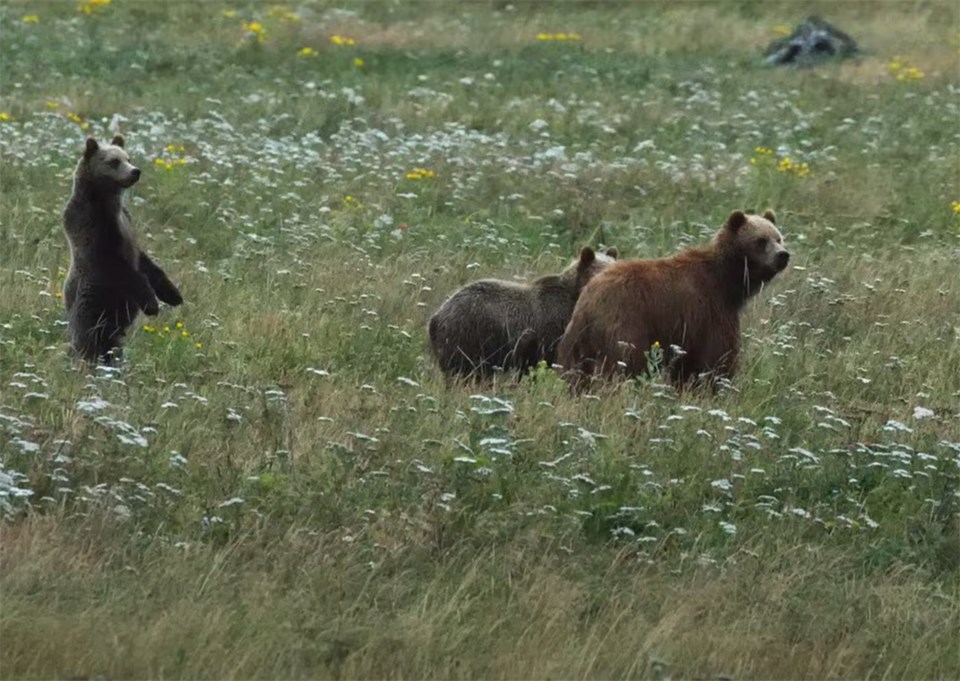COURTENAY, B.C. — When Catherine Babault captured images of a female grizzly bear with two cubs encountering a herd of elk on Vancouver Island last month, she knew she had witnessed something special.
"I feel very privileged — not everybody has the opportunity to see grizzly bears in nature and it was a very rare moment for Vancouver Island," said Babault, a professional wildlife photographer.
Not only is such a scene uncommon, the likelihood that the cubs were born on the island and didn't swim there could mean the start of a native-born population with big potential to affect the island's ecosystem, said Nicholas Scapillati, executive director of the Grizzly Bear Foundation.
Such a population of grizzlies could be transformative, he said.
Scapillati said grizzlies can eat up to 200,000 huckleberries a day and their scat would spread seeds as they wandered the island.
“I like to think of grizzly bears as the great cultivators. They are digging up the landscape. They're eating berries and moving the seeds around,” said Scapillati.
Scapillati said Vancouver Island's forests had been hammered for generations by industrial logging.
"Those forests and those salmon runs are trying to rebound, so a grizzly won't just disperse seeds, like black bears, they will also drag more salmon out of the rivers and into the forest and that's basically fertilizer," said Scapillati.
This could help trees grow bigger and stronger, he said.
“They're very important to the ecosystem, that’s why we call them keystone species," Scapillati said of the bears.
He said grizzly bears that occasionally show up on Vancouver Island are typically adults that swim over. But the cubs documented by Babault are the first thought to have been seen on Vancouver Island and would have been born there this winter.
"They are so small that they couldn’t have made the swim across from the mainland, hopping those islands through the treacherous waters of the Johnstone Strait,” Scapillati said.
What is not known is whether their mother was impregnated on the island or the mainland.
Female grizzlies can delay implantation of a fertilized egg. They may mate in the spring then delay implantation to give birth in their den over the winter.
In the encounter witnessed by Babault in early July, a group of Roosevelt elk walked toward the mother grizzly and her two cubs.
"And I was a bit concerned about what would happen next because the Roosevelt elk were in bigger numbers than the grizzly bears (and) they started to run towards the grizzly bears," said Babault.
Eventually the bears walked away from the elk.
Babault, who has authored three books on Vancouver Island and its wildlife, said she wouldn't disclose the exact location of the sighting to protect the family from others hoping to see them.
"Please keep a respectful distance from wildlife. Don't disturb them in their routine. If you want to take photos, make it in a safe way for you and (a) safe way for wildlife," said Babault.
Scapillati echoed the concern and said no one wants an encounter with the bears that goes wrong and results in the bears being "lethally removed."
“We want to see them live a long, wonderful life so that people can enjoy grizzly bears, and so it’s really up to us to protect them.”
— By Nono Shen in Vancouver
This report by The Canadian Press was first published Aug. 2024.
The Canadian Press



